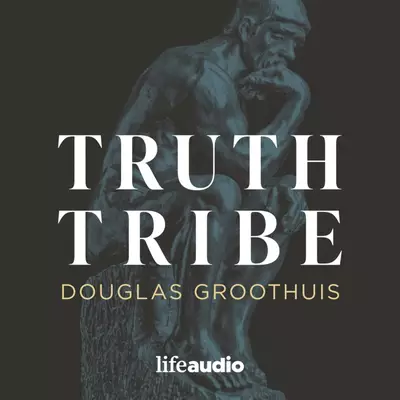Pascal's Compelling Case for the Christian Faith
Blaise Pascal’s Case for Christianity
I. The Genius of Blaise Pascal
A. Amazing life of Blaise Pascal (1623-1662)
B. Pascal as an apologist; not a fideist (unlike Soren Kierkegaard)
C. Nature of apologetics.
Defend the Christian worldview as objectively true, compellingly rational, and pertinent to all of life (1 Peter 3:15)
II. Pascal’s Case for Christianity
A. His apologetic be reconstructed.
Order. Men despise religion. They hate it and are afraid it may be true. The cure for this is first to show that religion is not contrary to reason, but worthy of reverence and respect. Next make it attractive, make good men wish it were true, and then show that it is. Worthy of reverence because it really understands human nature. Attractive because it promises true good.
B. We consider only two elements: the wager and the deposed royalty argument; there are more. See Douglas Groothuis, Beyond the Wager: the Christian Brilliance of Blaise Pascal (InterVarsity Academic, 2024).
III. The Wager: Risks, Rewards, Options
A. We should bet on God being rule instead of betting on God’s unreality in light of the possible consequences.
I should be much more afraid of being mistaken and then finding out that Christianity is true than of being mistaken in believing it to be true.
B. Theoretical reason: Is P true? How can I know this?
C. Prudential reason: What do I gain or lose by believing P? What actions should I pursue on this matter?
D. The outcomes and belief states
1. Believer, if Christian God exists:
Gain: eternal life; avoid hell. Infinite gain
Loss: worldly pleasures. Finite loss
2. Believer, if Christian God does not exist:
Gain: pleasures of religion. Finite gain
Loss: worldly pleasures and truth. Finite loss
3. Unbeliever (atheist or agnostic or member of other religion), if Christian God exists:
Gain: worldly pleasures. Finite gain
Loss: eternal life; gain hell, infinite loss
4. Unbeliever, if Christian God does not exist:
Gain: worldly pleasures. Finite gain
Loss: nothing.
E. Given the stakes, we should investigate the claims of Christianity with an open mind and open heart and not be indifferent.
There are only three sorts of people: those who have found God and serve him; those who are busy seeking him and have not found him; those who live without either seeking or finding him. The first are reasonable and happy, the last are foolish and unhappy, those in the middle are unhappy and reasonable.
IV. The Human Problem and Puzzle
A. What sort of freak then is man! How novel, how monstrous, how chaotic, how paradoxical, how prodigious! Judge of all things, feeble earthworm, repository of truth, sink of doubt and error, the glory and refuse of the universe! (131/434).
B. How to live with the human burden in light of reality; “deposed royalty” who can be restored through Jesus Christ
C. What are the options? We will look at two “live hypotheses”
V. A True, Rational, and Significant Explanation.
A. True explanation of the human condition: one that agrees with objective reality; factual; realism.
B. Rational explanation: one that explains who we are in accordance with the evidence and sound reasoning.
C. Significant explanation: one that gives us value, meaning, and realistic hope for being human in the world. Philosophical anthropology is a very important part of any worldview.
D. Manner of explanation: abduction (inference to best explanation)
VI. Views of Being Human: The New Age Worldview
A. New Age or spiritual worldview: Ken Wilber, Oprah Winfrey, Deepak Chopra
1. Background belief on humanity
a. Pantheism: everything is divine.
b. Monism: all is one (or nondualism)
c. Morality is not absolute, but good and evil dissolve into a universal and impersonal oneness.
2. New Age view on humanity
a. Human nature is really a divine nature: we are one with an impersonal deity.
b. Human problem: we have forgotten our true identity as divine, one with all things, and unlimited.
c. Human solution: Find the divine within through meditation, yoga, self-realization seminars.
3. Questioning New Age philosophy
a. Human beings are limited in power and goodness; this is evident and not a delusion or matter of ignorance.
b. There are moral realities that reveal a moral dualism: good and evil; right and wrong; virtue and vice. Rape is always wrong; kindness is better than wanton cruelty.
VII. Christianity: Deposed Royality
A. Background belief: personal theism—God as Creator, Lord, Judge
B. Pascal’s point can be strengthened by

Website: https://www.DouglasGroothuis.com
